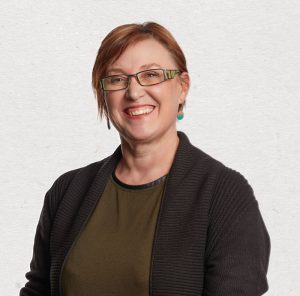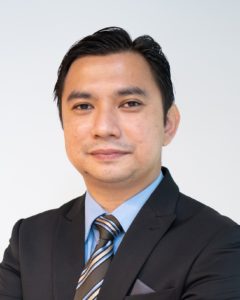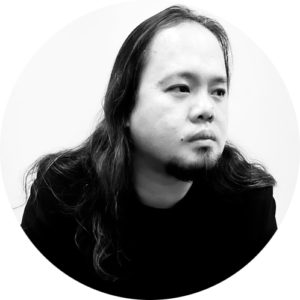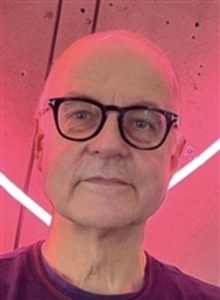august 2023
09aug1:00 pm2:30 pmDeveloping New research Teams in CTMTProfessor Kim Vincs
Event Details
Hello Fellow CTMT Members, For our meeting on Wed 9th August, I have put together a short workshop plan for developing new research teams within CTMT. Specifically, we’d like to put
Event Details
Hello Fellow CTMT Members,
For our meeting on Wed 9th August, I have put together a short workshop plan for developing new research teams within CTMT. Specifically, we’d like to put together 2 or more teams, and we’d like to frame one or both around gender and diversity equality in new media technology. This is not to pre-determine a focus, but to consider what aspects of our research might speak to these issues by means of topic, team constitution, or even an extension of existing work that extends its focus in this area. For example, what questions might we already be asking simply because of the composition of our team and how that influences what we research? What questions could we be asking? How could a focus on diversity and inclusion point us towards more interesting and significant research in the fields in which we already operate?
All are welcome, regardless of research focus, and there will be room to discuss the broader issue of research teams, and how we might productively form and re-form them to provide each other with support, inspiration and critical mass within CTMT.
I will also discuss and frame issues of team formation in relation to future grant development, with a particular focus on ARC grants from my perspective as a member of the ARC College of Experts.

Professor Kim Vincs is a Senior Principal Research Fellow within the Centre for Transformative Media Technologies at Swinburne University of Technology in Melbourne, Australia. Her research uses creative practice methods drawn from dance technology to develop new uses and use cases for technologies such as motion capture, volumetric capture and virtual and augmented reality. Her research includes 8 Australian Research Council Discovery and Linkage projects in movement analysis and dance technology and 50+ industry collaborations integrating scientific and artistic approaches across fields as diverse as dance, mathematics, cognitive psychology and software engineering.
Professor Vincs was Co-Founder and Director of the Centre for Transformative Media Technologies and Professor of Interactive Media at Swinburne University of Technology, and, prior to moving to Swinburne, Founder/Director of the Deakin Motion.Lab at Deakin University. She is now leading a new 3- year project funded by the Australian Research Council Discovery Program investigating the use of volumetric technologies in art, including new forms of volumetric interaction design. Professor Vincs is also a dancer, choreographer and interactive media artist with over 30 years experience in choreography and creative technology.
You can join in person at GS711 Turing Hybrid Meeting Space, Wakefield St Hawthorn Campus, Swinburne University
Or
Microsoft Teams meeting
Join on your computer, mobile app or room device
Click here to join the meeting
Meeting ID: 456 193 307 205
Passcode: pErzMs
Time
(Wednesday) 1:00 pm - 2:30 pm
Location
GS711 Turing Hybrid Meeting Space
Wakefield St
september 2023
13sep1:00 pm2:30 pmDEFENCE RESEARCH AT SWINBURNEOpen Forum
Event Details
This meeting will be an open forum to discuss the implications for the centre and researchers regarding defence research. Swinburne is taking a more strategic approach to defence research as signalled
Event Details
This meeting will be an open forum to discuss the implications for the centre and researchers regarding defence research.
Swinburne is taking a more strategic approach to defence research as signalled by the appointment of Professor Saeid Nahavandi to the position of Associate Deputy Vice-Chancellor Research and Chief of Defence Innovation.
Swinburne’s approach to defence related research is framed under the banner of Detect and Protect.
There will likely be increased opportunities for researchers to contribute appropriate skills and knowledge to larger research teams across the university in service of defence.
Please join us to share in the discussion about the defence related research at Swinburne as it impacts the centre and researchers.
One of the outcomes of the meeting could be a registering of interest, skills and ideas with a mechanism for making these known to team leaders looking to address research challenges in the area.
Time
(Wednesday) 1:00 pm - 2:30 pm
Location
GS711 Turing Hybrid Meeting Space
Wakefield St
november 2023
Event Details
Sarawak, the largest state in Malaysia is home to multi-ethnic groups and more than 45 different dialects. The vast diversity of their history, indigenous knowledge, and cultures fused with the
Event Details
Sarawak, the largest state in Malaysia is home to multi-ethnic groups and more than 45 different dialects. The vast diversity of their history, indigenous knowledge, and cultures fused with the remnants of the Brooke’s era has resulted in unique heritage traces that Sarawakians are proud of. Reaching a hundred-year-old, Fort Long Akah is one of the endangered forts that needs protection and awareness. Using virtual reality and storytelling, this talk investigates the intangible and tangible elements of Long Akah from local Baram community and to explore the use of interactive experience in cultural heritage education

Wilson Suai is currently a first year PhD candidate with Swinburne University of Technology (Sarawak campus). He graduated with Bachelor of Computer Science majoring in Interactive Media with Honours in 2006 and obtained his Master of Computer Science in Multimedia System from University Putra Malaysia (UPM) in 2009.
You can join in person at GS711 Turing Hybrid Meeting Space, Wakefield St Hawthorn Campus, Swinburne University
Or
Microsoft Teams meeting
Join on your computer, mobile app or room device
Click here to join the meeting
Meeting ID: 456 193 307 205
Passcode: pErzMs
Time
(Wednesday) 1:00 pm - 2:00 pm
Location
GS711 Turing Hybrid Meeting Space
Wakefield St
08nov1:00 pm2:30 pmListening to the Salako: Voices of the Paddy and HumanAugustus Raymond Segar
Event Details
Listening to the Salako: Voices of the Paddy and Human is an Extended Reality (XR) documentary storytelling co-created with the Salako community in Pueh, Sarawak. The ritual and storytelling are performed by
Event Details
Listening to the Salako: Voices of the Paddy and Human is an Extended Reality (XR) documentary storytelling co-created with the Salako community in Pueh, Sarawak. The ritual and storytelling are performed by the community members recommended by the chief of the Salako community. The XR documentary storytelling of the rituals brings the audience on a journey and witnesses the 13 episodes of the rituals for the paddy farming of the Salako community. The interactive digital experience offered by the XR documentary will allow the audience to navigate and immerse themselves in the rituals while listening to the stories and the voices of the Salako community. The Salako community believes that paddy is a gift from God, and within paddy resides a princess who will keep the community well. Therefore, to respect the princess’s spirit (paddy), the Salako community members (humans) perform the rituals. Voices of the Paddy and Human is a creative arts metaphor to represent the inaudible and audible voices of the Salako community.
Extended Reality is the umbrella term used to describe immersive media and technologies consisting of Augmented Reality, Virtual Reality and Mixed Reality. Augmented Reality is a technology that overlays digital visual elements on the physical world through the users’ field of view, while Virtual Reality completely replaces the physical world with an immersive 3-dimensional, 360-degree view of a digitally constructed environment. Mixed Reality, on the other hand, although similar to Augmented Reality, can be easily distinguished by its spatial computing attribute that allows detection and seamless interaction between digital and physical world elements (Khoshelham, Tran, and Acharya, 2019).
The creative arts study proposes a theoretical framework derived from Deleuzian’s ‘Line of flight’ in Rhizome, a concept Gilles Deleuze and Félix Guattari introduced in their Capitalism and Schizophrenia project from 1972 – 1980 (Deleuze and Guattari, 1987). The Rhizome describes a theory allowing multiple, non-hierarchical entry and exit points in data representation and interpretation. Based on this theory, XR storytelling can be reimagined as a mediating structure to investigate storytelling within the postcolonial community setting. The multiple, non-hierarchical entry and exit points in XR storytelling suggest no specific sequence to start or end the storytelling experience. XR storytelling can be a mediating structure between different entities in a postcolonial context.
Bignall (2011) suggested that postcolonialism can be thought of as the practice of an attitude of listening with respect. Using Bignall’s approach to postcolonialism, this study will investigate XR storytelling as a mediating structure for the community to affirm its continuing relationship with the community itself and externally. Hence, the study will contribute to the body of knowledge on XR, storytelling and postcolonial.
The study involves a community known as the Salako, based in Kampung Pueh, Lundu (Sarawak, Malaysia). The Salako community is one of the ethnic groups in Lundu District at Sarawak. They speak the Salako language and have various cultural rituals for various events. The study will contribute to documenting and preserving their rituals and practices through immersive media and technologies.
Join us in person at GS711 Turing Hybrid Meeting Space
Or Online
Microsoft Teams meeting
Click here to join the meeting
Meeting ID: 456 193 307 205
Passcode: pErzMs
 Augustus Raymond Segar is a Lecturer and the Deputy of School for Design and Arts at Swinburne University. Throughout his career, he has worked with various industry partners and government bodies, including Nokia, Microsoft Malaysia, Malaysia Digital Economy Corporation, Malaysian Communications and Multimedia Commission, Sarawak Multimedia Authority, Sarawak Digital Economy, Tabung Ekonomi Gagasan Anak Bumiputera Sarawak, SME Corporation, Sarawak Tourism Board and Borneo Convention Centre Kuching. This led to important milestones for the University, which has included the signing of MoUs, partnership, project commercialisation, formation of the course advisory committee and securing numerous commercial, industry projects and grants. Within the local creative industry ecosystem, he is also actively involved as a trainer, facilitator and mentor for budding start-ups. Augustus specialises in eXtended Reality (XR) and currently teaches in the areas of new technologies, interactive applications, games and animation.
Augustus Raymond Segar is a Lecturer and the Deputy of School for Design and Arts at Swinburne University. Throughout his career, he has worked with various industry partners and government bodies, including Nokia, Microsoft Malaysia, Malaysia Digital Economy Corporation, Malaysian Communications and Multimedia Commission, Sarawak Multimedia Authority, Sarawak Digital Economy, Tabung Ekonomi Gagasan Anak Bumiputera Sarawak, SME Corporation, Sarawak Tourism Board and Borneo Convention Centre Kuching. This led to important milestones for the University, which has included the signing of MoUs, partnership, project commercialisation, formation of the course advisory committee and securing numerous commercial, industry projects and grants. Within the local creative industry ecosystem, he is also actively involved as a trainer, facilitator and mentor for budding start-ups. Augustus specialises in eXtended Reality (XR) and currently teaches in the areas of new technologies, interactive applications, games and animation.
Time
(Wednesday) 1:00 pm - 2:30 pm
december 2023
Event Details
With the climate crisis and its repercussions becoming more and more tangible, the media are increasingly participating in the production, circulation, and interrogation of environmental assumptions, using both explicit and
Event Details
With the climate crisis and its repercussions becoming more and more tangible, the media are increasingly participating in the production, circulation, and interrogation of environmental assumptions, using both explicit and implicit ways of framing the crisis. In this lecture, I will present an overview of my research on green media/ecogames, and will do so in three steps. First, I will present our ‘Green Media Studies initiative’ that seeks to contribute to the understanding of the interconnectedness of media representations, media use, media impact, and media technologies in addressing the climate crisis. Then I will give a short overview of the four thematic sections of our book Ecogames: Playful Perspectives on the Climate Crisis. They are: Today’s Challenges: Games for Change; Future Worlds: New Imaginaries; The Nonhuman Turn; and Critical Metagaming Practices. Finally, I will introduce our Horizon Europe project STRATEGIES: Sustainable TRAnsiTion for Europe’s Game IndustriES’ (2024-2028). It is the project’s aim to support Europe’s game industries in realising their potential as drivers of sustainable innovation, helping to achieve the goals of the European Green Deal.
Links:
- Green Media Studies initiative: https://greenmediastudies.nl
- Green Mediography: https://greenmediography.nl
- Ecogames: Playful Perspectives on the Climate Crisis: https://www.aup.nl/en/book/9789463721196/ecogames

Prof. Joost Raessens holds the chair of Media Theory at Utrecht University. His research focuses on the understanding of how green media—in the broadest sense, including digital media, theatre, film, television, audio, art and literature—contribute to ecological thought and facilitate different forms of civic engagement (global ecological citizenship) on a micro, meso and macro level. In general, his research interests include digital media and the ‘ludification of culture’; think of Games and VR for Change dealing with issues such as the climate crisis, forced migration, and space exploration (www.raessens.nl).
You can join in person at GS711 Turing Hybrid Meeting Space, Wakefield St Hawthorn Campus, Swinburne University
Or
Microsoft Teams meeting
Join on your computer, mobile app or room device
Click here to join the meeting
Meeting ID: 456 193 307 205
Passcode: pErzMs
Time
(Wednesday) 1:00 pm - 2:30 pm
Location
GS711 Turing Hybrid Meeting Space
Wakefield St

